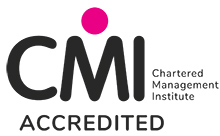Course Details

Dual Degree
APU-DMU Dual Degree Programme
Latest Technologies
More Than Just An Accounting Master Programme
Requirements
Entry Requirements
- Bachelor’s degree in related fields with a minimum CGPA of 2.75, or its equivalent qualification as accepted by the Senate.
- Bachelor’s degree in related fields with a minimum CGPA of 2.50 and not meeting a CGPA of 2.75 can be accepted, subject to a rigorous internal assessment.
- Bachelor’s degree in related fields below a CGPA of 2.50 can be accepted, subject to a minimum of 5 years working experience in the relevant fields.
- Bachelor’s degree in non-related fields with a minimum CGPA of 2.50 as accepted by the Senate and with minimum of 5 years working experience in the relevant fields or any working experience in the Accounting related fields, subject to a rigorous internal assessment and passing pre-requisite courses.
- Relevant professional accounting qualifications equivalent to a bachelor’s degree as accepted by the Senate.
Note: The above entry requirements may differ for specific programmes based on the latest programme standards published by Malaysian Qualifications Agency (MQA).
- IELTS : 5.5
What We Teach
This programme is specifically designed to provide:
- Exposure towards both financial and managerial aspects of accounting.
- Knowledge of current and latest practices and principles of accounting.
- In-depth knowledge of accounting concepts and standard procedures.
- Exposures towards professionalism and ethical standards needed to execute accountabilities and responsibilities in evaluation and decision making.
- FinTech knowledge and technical skill relevant to Accounting and Finance.
-
The Benefits of the Programme
On successful completion of this programme, you will be able to :
- Demonstrate a coherent and advanced understanding of the concepts, principles of accounting, its applications and financial workings, and also the application of such understanding in using those financial assets to the real world of business and investment.
- Describe and comment on advanced scholarship in accounting and finance and critically evaluate arguments and assumptions to make judgments.
- Demonstrate the ability to recognise and appropriately respond to ethical issues in the practice of accounting by incorporating appropriate professional codes of conduct and social responsibility.
- Use oral, written and electronic communication to elicit information, to explain, debate and present complex arguments, knowledge and rationale to different audiences and circumstances.
- Gather, interpret, evaluate, analyse and apply relevant professional standards to complex accounting-related issues, and come to well-reasoned conclusions.
- Demonstrate a commitment to life-long learning and professional development by reading and critically appraise management theory.
-
Who Should Attend
This programme is specially designed for enhancing the current group of accounting graduates or practitioners who may need to further advance, improve their fundamental understanding of the accounting profession and the market needs from the academia perspective. It is a process of preparation as well as upgrading their skills.
-
Modules & Project
This programme comprises 13 coursework modules (including Research Methodology module) and a Project.
Pre-Requisite Modules (For Non-Accounting Students)
Duration: 1 month (Full-time)- Cost Accounting Fundamentals
- Financial Accounting Fundamentals 1
- Financial Accounting Fundamentals 2
Modules
- Quantitative Methods for Decision Making
- Managerial Finance
- Management Accounting for Decision Making
- Management Control and Audit
- Financial Accounting and Reporting
- Taxation
- Financial Reporting and Analysis
- Forensic Accounting and Fraud Examination
- Accounting Information Systems
- Research Methodology
- Ethical Obligation in Accounting
- Accounting for Islamic Financial Institutions
- Business Law
- Project
-
Project
You will be expected to engage incomprehensive research through a critical review of published material relevant to Accounting. Thorough review is carried out on theoretical and empirical literature from which a conceptual or theoretical framework is derived. Sources of literature will range from academic papers, business case history and consultancy reports. Existing theories and research findings will be utilised to create solutions or opportunities to address challenges in today’s international business climate. Identification of such opportunities or challenges will be important factors in modern business strategies and planning. Business case history will be utilised to research and analyse either the strategies of an organisation or the application of specific concepts, theories or techniques as well as analyse the effectiveness and outcomes. The consultancy reports will be utilised to examine contemporary problems faced by one or more organisations and to recommend strategies and actions to be taken by the organisation(s). Case study would be the core focal point of content delivery for this course.
Facilities at APU
The APU Centre Point & Atrium serves as a melting pot of cultures from all over the world. Here, cultural activities are organised regularly at the campus, fostering long-lasting intercultural relationships among APU students, who come from over 130 countries.
Ready, Set, Go.
Whether you are locals or traveling here, we have the options for you to pursue your dreams.
RM38,800
Total for Malaysian
RM42,000
(USD11,050)
Total for International
Programme code : (R2/0411/7/0006)(04/29)(MQA/FA3458)
All information is correct at the time of publication, but is subject to change in the interest of continuing improvement.
Note : All fees are payable in Ringgit Malaysia (RM). Any USD amounts indicated by APU are for reference only and are non-binding. The final amount payable is the RM amount stated in the official invoice, and the University will not entertain any claims arising from foreign exchange fluctuations.

Postgraduate Studies
Learn More
Awards & Recognitions
Learn MoreAPEL.C
Online Learning
Facilities
Want to know more ?
Let’s Connect